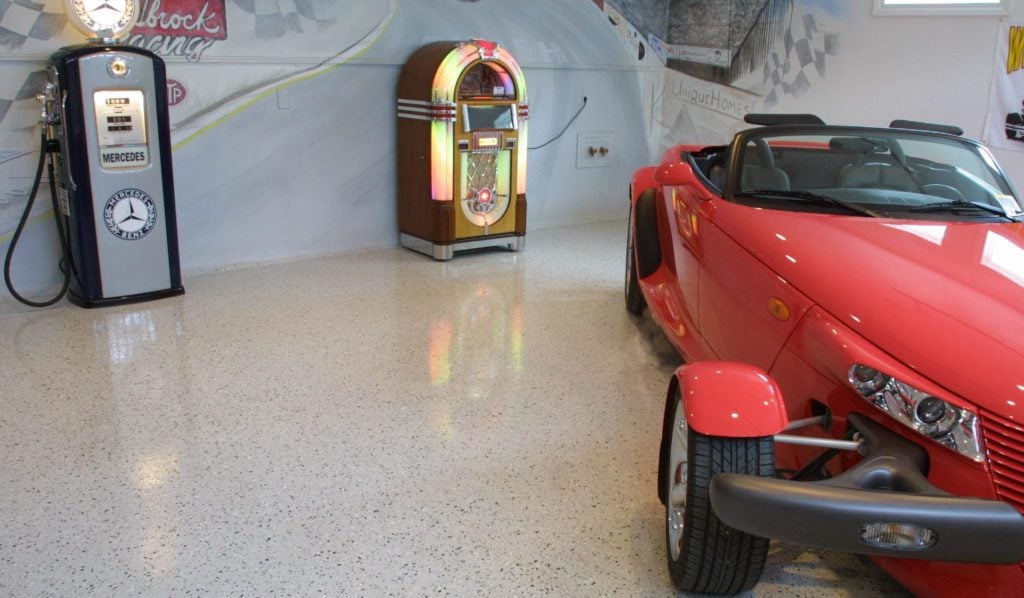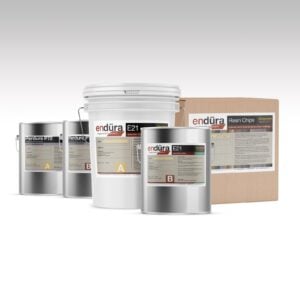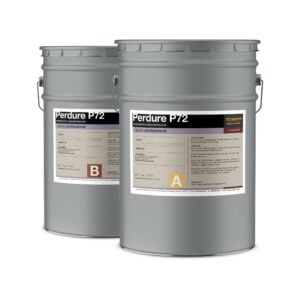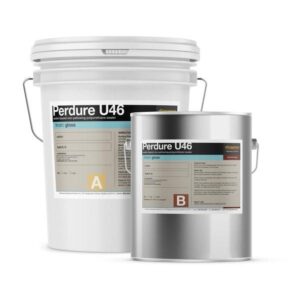Epoxy resins have been used to coat garage floors for over a decade. In contrast, polyurethane (polyurea) and polyaspartic resins are relatively new. All three resinous coatings are highly durable, and each has advantages and disadvantages.
Epoxy resins are used extensively in heavy-duty industries and are easier to install due to their slower setting time. Polyurea and Polyaspartic coatings provide a faster return-to-service than Epoxy. Polyaspartic coatings provide resistance against fading due to the sun’s UV rays.
So, how do you decide which type of coating to use for your garage floor project? There are several considerations.
1. Surface Preparation
Our Recommendation: If you don’t have or can’t rent a grinding machine, choose Epoxy.
Surface preparation (surface-prep) is critical for the performance of any resinous floor coating. It becomes a vital factor depending upon the type of resin used. The key objective in the surface preparation process is to prepare the concrete substrate so the resin coating will adhere to it properly, creating an invincible bond.
If you are a DIY enthusiast or a contractor who does not have a grinding machine, using an Epoxy coating for the base coat is a good choice. Resins like Epoxy with ‘good wettability’ bond better to the substrate, making surface preparation less critical. For other types of resin, you should rent a floor sander to prepare the concrete substrates.

“Epoxy resins have been used to coat garage floors for over a decade.”
Right: This resin chip floor coating is a perfect example of how a custom epoxy floor can help transform a mundane garage into a human friendly space. While epoxy coatings are excellent, other types of coatings work better depending on the conditions and skill set of the installer.
2. Thickness Requirement
Our Recommendation: Choose Epoxy for unlevel surfaces.
If your substrate is unlevel, you’ll need a thick coating that can help level the floor. In this scenario, Epoxy resin may be the best option.
Epoxy coatings can be mixed with self-leveling additives and applied up to 1/8″ thick. In contrast, Polyurea or Polyaspartic coatings cannot be used more than 10 to 12 mil thickness in a single pass. (1 mil = 1/1000th inch). Moreover, applying polyurea or polyaspartic coatings in multiple layers can become very expensive.
3. Ambient Temperature
Our Recommendation: For installation in Cold environments, use a Polyaspartic or Polyurea resinous coating.
Polyurea or Polyaspartic coatings cure quickly in cold temperatures. It takes 2 to 4 hours for these coatings to cure in temperatures of 40°F or below.
In contrast, Epoxy takes 24 to 36 hours to cure in cold environments. Cold cure hardeners are available for Epoxy that will enable it to cure faster, though these hardeners will make the final coating less UV stable.
4. Installer Experience
Our Recommendation: Inexperienced installers should choose an epoxy resin coating.
Epoxy resins take longer to set (25 minutes), whereas polyurea/polyaspartic resins set much quicker (10 to 12 minutes). Inexperienced installers may find the short set time of polyaspartic and polyurea coatings very challenging.
5. Quick Return to Service
Our Recommendation: Use Polaspartic or Polyurea resinous coatings if downtime is your primary concern.
Polyurea and Polyaspartic are the best options for garage floor coatings if a quick return to service is a prime criterion. A two or three-car garage floor can be installed in a day by an experienced contractor using these coatings. Polyurea and Polyaspartic resins have become very popular in “One-Day Flooring Systems.”
Our Overall Recommendation.
For DIY enthusiasts and Inexperienced Contractors
DIY enthusiasts and contractors with little experience may want to use an Epoxy resin basecoat followed by a Polyaspartic topcoat. This choice will make the installation easier while providing the UV and quick return to service benefits of the polyaspartic resin.
DIY Packages – Combined the benefits of Epoxy and Polyaspartic Polyurea.
Endura – Professional Grade DIY Garage Floor Coating Kit (duraamen.com)
For Experienced Contractors
Experienced contractors with grinding machines will probably want to use Polyaspartic and Polyurea on level surfaces. This choice provides the fastest return to service possible at any temperature.
Learn How to Upgrade Your Garage Floor with Epoxy Coatings
Polished garage flooring offers numerous advantages to homeowners seeking a beautiful and low-maintenance solution for their garages. Firstly, the final finish of polished concrete flooring is aesthetically pleasing, enhancing the overall look of the space. Additionally, polished garage flooring is easy to maintain and highly durable, making it a long-lasting investment. The process of achieving polished flooring is simple and cost-effective, providing a practical solution for garage floor restoration. Moreover, polished concrete garage flooring is resistant to dust, stains, and moisture, further contributing to its low-maintenance nature. These benefits, particularly the durability and minimal upkeep required, make polished garage flooring a highly efficient choice for homeowners looking to improve their garage floors. With proper care, polished concrete garage flooring can last up to 20 years, offering a sustainable and practical flooring solution for any garage space.
To properly polish concrete garage floors, you will need specific machines and tools. First, you will require a concrete polishing machine, such as the OF20Pro, which is versatile and suitable for polishing concrete surfaces efficiently. Additionally, a grinder is necessary to prepare the concrete floor before beginning the polishing process. For optimal results, it is recommended to use a densifier to harden the flooring and make it more durable. Finally, applying a polish guard sealer will help seal the floor and make it resistant to water and stains.
Restoring a garage floor that has worn away over time involves a series of processes known as garage floor resurfacing. The choice of restoration process will be influenced by factors such as cost, durability, and maintenance. For instance, grinding may be suitable for rough surfaces, while polishing can offer a smoother finish. Sealing can help protect the floor from future damage, while epoxy coating and painting can provide a fresh appearance. Special equipment may be required, such as grinders, based on the size of the project. By selecting the most appropriate method tailored to your specific needs and requirements, you can effectively renew the appearance and functionality of your garage floor.
Interested in adding epoxy coatings to your garage floor? We have the resources to help. Watch our garage floor installation videos to learn how to add a professional-grade epoxy coating system to your garage floor.






